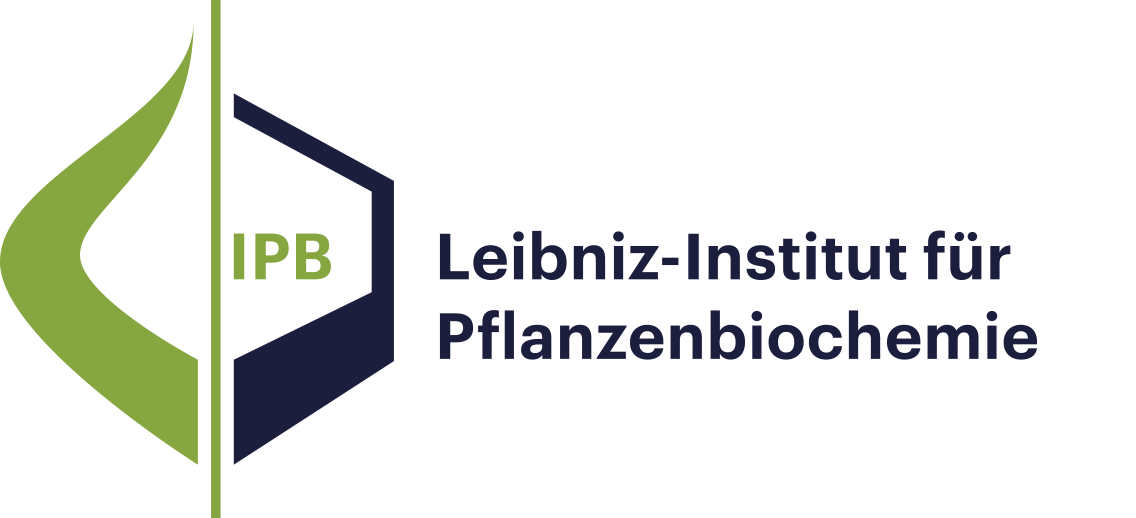- Ergebnisse als:
- Druckansicht
- Endnote (RIS)
- BibTeX
- Tabelle: CSV | HTML
Publikation
Publikation
Publikation
Leitbild und Forschungsprofil
Molekulare Signalverarbeitung
Natur- und Wirkstoffchemie
Biochemie pflanzlicher Interaktionen
Stoffwechsel- und Zellbiologie
Unabhängige Nachwuchsgruppen
Program Center MetaCom
Publikationen
Gute Wissenschaftliche Praxis
Forschungsförderung
Netzwerke und Verbundprojekte
Symposien und Kolloquien
Alumni-Forschungsgruppen
Publikationen
Publikation
De novo jasmonic acid (JA) synthesis is required for wound-induced expression of proteinase inhibitors and other defense genes in potato and tomato. The first step in JA biosynthesis involves lipoxygenase (LOX) introducing molecular oxygen at the C-13 position of linolenic acid. We previously have shown that, in potato, at least two gene families code for 13-LOX proteins. We have now produced transgenic potato plants devoid of one specific 13-LOX isoform (LOX-H3) through antisense-mediated depletion of its mRNA. LOX-H3 depletion largely abolishes accumulation of proteinase inhibitors on wounding, indicating that this specific LOX plays an instrumental role in the regulation of wound-induced gene expression. As a consequence, weight gain of Colorado potato beetles fed on antisense plants is significantly larger than those fed on wild-type plants. The poorer performance of LOX-H3-deficient plants toward herbivory is more evident with a polyphagous insect; larvae of beet armyworm reared on the antisense lines have up to 57% higher weight than those fed on nontransformed plants. LOX-H3 thus appears to regulate gene activation in response to pest attack, and this inducible response is likely to be a major determinant for reducing performance of nonspecialized herbivores. However, the regulatory role of LOX-H3 is not caused by its involvement in the wound-induced increase of JA, as wild-type and LOX-H3 deficient plants have similar jasmonate levels after wounding. LOX-H3-deficient plants have higher tuber yields. The apparent effect of suppressing the inducible defensive response on plant vigor suggests that it may pose a penalty in plant fitness under nonstress situations.
Publikation
De novo jasmonic acid (JA) synthesis is required for wound-induced expression of proteinase inhibitors and other defense genes in potato and tomato. The first step in JA biosynthesis involves lipoxygenase (LOX) introducing molecular oxygen at the C-13 position of linolenic acid. We previously have shown that, in potato, at least two gene families code for 13-LOX proteins. We have now produced transgenic potato plants devoid of one specific 13-LOX isoform (LOX-H3) through antisense-mediated depletion of its mRNA. LOX-H3 depletion largely abolishes accumulation of proteinase inhibitors on wounding, indicating that this specific LOX plays an instrumental role in the regulation of wound-induced gene expression. As a consequence, weight gain of Colorado potato beetles fed on antisense plants is significantly larger than those fed on wild-type plants. The poorer performance of LOX-H3-deficient plants toward herbivory is more evident with a polyphagous insect; larvae of beet armyworm reared on the antisense lines have up to 57% higher weight than those fed on nontransformed plants. LOX-H3 thus appears to regulate gene activation in response to pest attack, and this inducible response is likely to be a major determinant for reducing performance of nonspecialized herbivores. However, the regulatory role of LOX-H3 is not caused by its involvement in the wound-induced increase of JA, as wild-type and LOX-H3 deficient plants have similar jasmonate levels after wounding. LOX-H3-deficient plants have higher tuber yields. The apparent effect of suppressing the inducible defensive response on plant vigor suggests that it may pose a penalty in plant fitness under nonstress situations.
Publikation
De novo jasmonic acid (JA) synthesis is required for wound-induced expression of proteinase inhibitors and other defense genes in potato and tomato. The first step in JA biosynthesis involves lipoxygenase (LOX) introducing molecular oxygen at the C-13 position of linolenic acid. We previously have shown that, in potato, at least two gene families code for 13-LOX proteins. We have now produced transgenic potato plants devoid of one specific 13-LOX isoform (LOX-H3) through antisense-mediated depletion of its mRNA. LOX-H3 depletion largely abolishes accumulation of proteinase inhibitors on wounding, indicating that this specific LOX plays an instrumental role in the regulation of wound-induced gene expression. As a consequence, weight gain of Colorado potato beetles fed on antisense plants is significantly larger than those fed on wild-type plants. The poorer performance of LOX-H3-deficient plants toward herbivory is more evident with a polyphagous insect; larvae of beet armyworm reared on the antisense lines have up to 57% higher weight than those fed on nontransformed plants. LOX-H3 thus appears to regulate gene activation in response to pest attack, and this inducible response is likely to be a major determinant for reducing performance of nonspecialized herbivores. However, the regulatory role of LOX-H3 is not caused by its involvement in the wound-induced increase of JA, as wild-type and LOX-H3 deficient plants have similar jasmonate levels after wounding. LOX-H3-deficient plants have higher tuber yields. The apparent effect of suppressing the inducible defensive response on plant vigor suggests that it may pose a penalty in plant fitness under nonstress situations.

